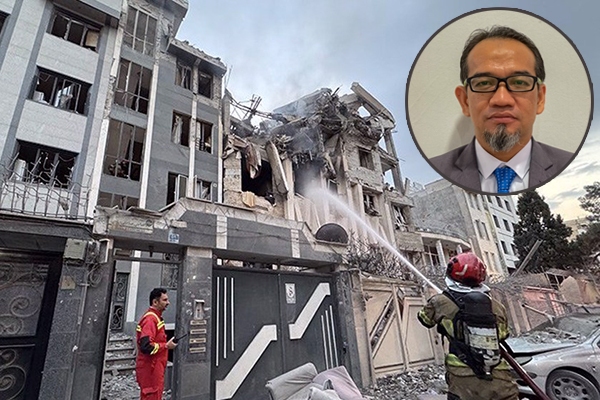Iran Entitled to Self-Defense Under UN Charter, Says Malaysian Expert

Speaking to IQNA in the wake of recent US-Israeli aggression on Iran, Noor Nirwandi, a Security & PsyOps expert at Centre for Information and Media Warfare Studies (CMIWS), pointed to Iran’s right of self-defense.
“Iran has that right as well when under attack,” he said, referring to the self-defense provision in the UN Charter. “Countries under attack must be allowed to defend themselves. These are key elements in preventing further escalation and instability.”
The Israeli regime launched a full-scale aggression on Iranian territory on June 13, striking multiple military and nuclear sites, and carrying out assassinations of senior military officials, nuclear scientists, and civilians. The United States also took part in the assault by striking Iran’s peaceful nuclear facilities located in the central region of the country.
In retaliation, Iran’s Armed Forces launched precise strikes on the regime’s military and industrial infrastructure using advanced-generation missiles. Iran also hit back at the United States by targeting a strategic airbase in Qatar.
Twelve days after the start of the war, the occupying regime was compelled to announce a unilateral ceasefire, based on a proposal from Washington.
Read More:
Nirwandi warned that continued Israeli attacks, especially in Gaza, threatens to destabilize not just West Asia but the entire Muslim world. He stressed that peace cannot be achieved without mutual respect and equal treatment of all nations.
“The sovereignty of Iran must be respected, just as the rights of the Palestinian people—particularly those in Gaza—must be acknowledged,” he said.
He echoed criticisms towards international institutions, including the United Nations Security Council and the International Atomic Energy Agency (IAEA), for selective silence and double standards. “The Security Council must pass formal and respected resolutions that protect countries from aggression, such as the attacks on Gaza,” he stated. He added that the IAEA and other international bodies must adopt “broader and fairer approaches” in their engagements.
Both the UN bodies failed to condemn Israeli and US attacks on Iranian soil, which was a blatant violation of the country’s sovereignty and international law.
Read More:
Referring to the decades-long Israeli occupation of Palestine, Nirwandi called for concrete international action to end “inhumane actions.” He urged global powers to stop enabling violations of sovereignty and instead support the Palestinian people’s right to self-determination and humanitarian aid.
“We want peace and stability in West Asia. We call on all nations to respect one another’s sovereignty and allow Palestine to develop independently,” he said.
Nirwandi also noted Malaysia’s potential role as a mediator, describing it as a “leading Muslim-majority country” with the diplomatic capacity to serve as an intermediary in international conflicts.
Calling for an end to structural bias in international diplomacy, Nirwandi reaffirmed the need for global governance that respects sovereignty, rejects interventionism, and promotes peace.
The views and opinions expressed in this interview are solely those of the interviewee and do not necessarily reflect the views of International Quran News Agency.
Interview by Mohammad Ali Haqshenas



